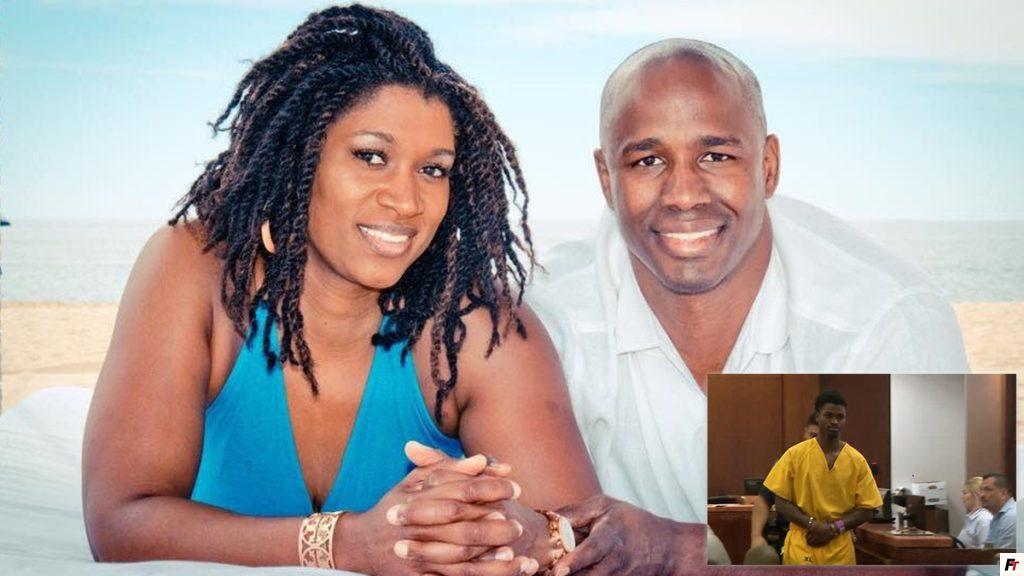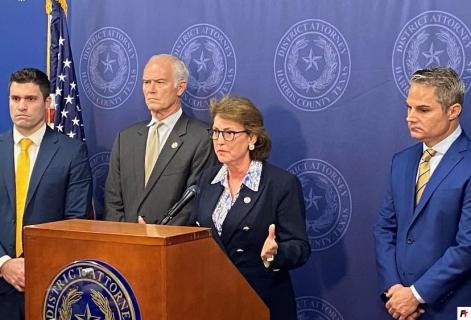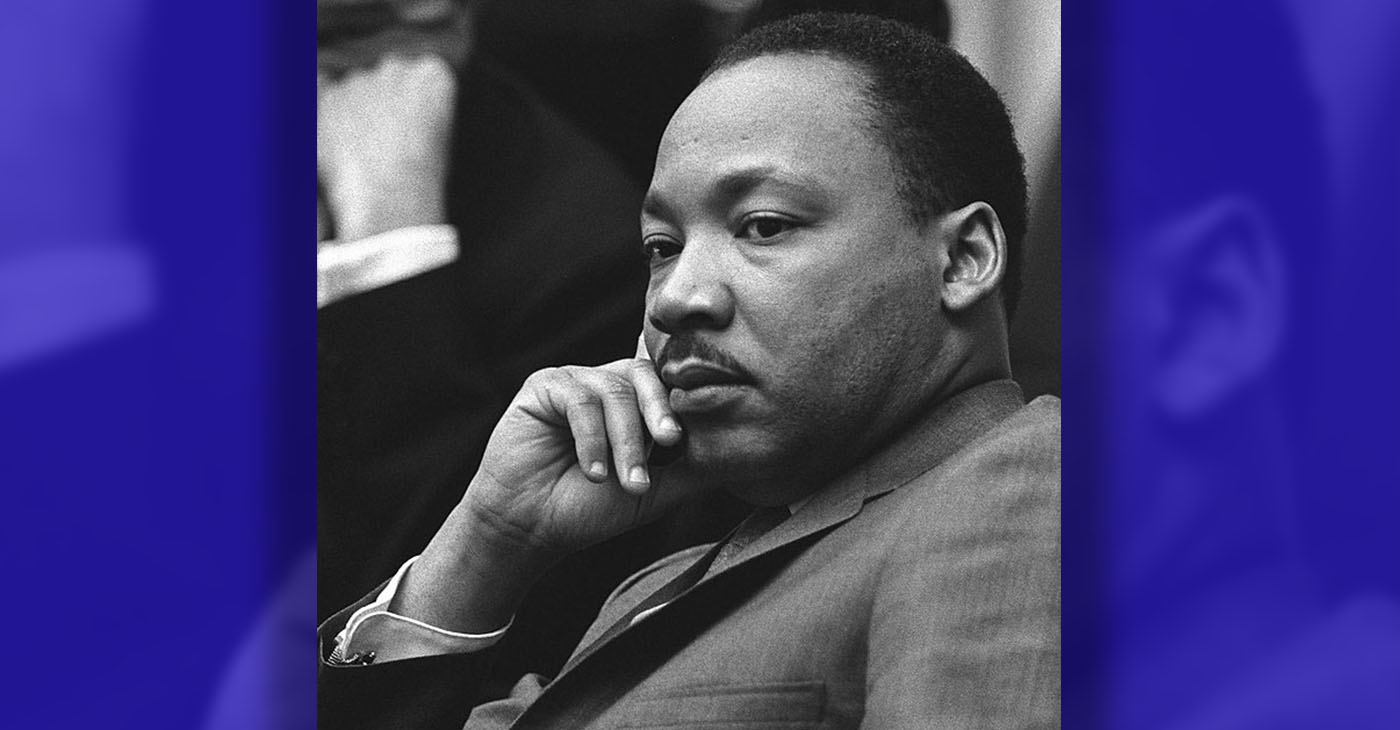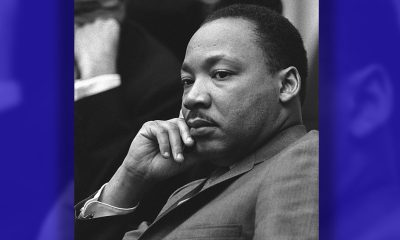#NNPA BlackPress
Guilt or Innocence… A Jury Has Decided: After Two Mistrials, a Third Jury Has Found A.J. Armstrong Jr. Guilty of Capital Murder
ABOVE: Dawn and Antonio Armstrong Sr. and A.J. Armstrong Jr. (bottom right) Over the past seven plus years, there has been a lot of discussion regarding the cold-blooded and brutal murders of Antonio Armstrong Sr., and his wife Dawn Armstrong, as they were shot in the head with a .22-caliber pistol while they both slept […]
The post Guilt or Innocence… A Jury Has Decided: After Two Mistrials, a Third Jury Has Found A.J. Armstrong Jr. Guilty of Capital Murder first appeared on BlackPressUSA.


ABOVE: Dawn and Antonio Armstrong Sr. and A.J. Armstrong Jr. (bottom right)
Over the past seven plus years, there has been a lot of discussion regarding the cold-blooded and brutal murders of Antonio Armstrong Sr., and his wife Dawn Armstrong, as they were shot in the head with a .22-caliber pistol while they both slept in their Bellaire-area home on July 29, 2016.
There has been even more conversation about whether their—then 16-year-old son, Antonio “AJ” Armstrong Jr.—used the gun that was owned by his father to commit those heinous murders and if he is responsible for killing both of his parents back in 2016.
As the court of public opinion has consistently weighed in on AJ Armstrong’s alleged guilt or innocence over the last seven years, three Houston juries heard the evidence surrounding the case during three separate trials, with the first two trials resulting in mistrials.
On August 15th, however, attorneys for the prosecution and the defense presented their cases to a third jury. After seeing all the evidence, hearing from 31 witnesses over 11 days, and listening to the closing arguments of both sides, the third jury deliberated the fate of AJ Armstrong for over nine hours over a two-day period, and came back with a unanimous verdict the next day.
On August 16th, “Guilty” was the unanimous verdict handed down by the 12 jurors, finding AJ Armstrong guilty of the capital murder of both his parents—Antonio Armstrong Sr. and Dawn Armstrong. The, now 23-year-old, was immediately sentenced to life in prison, with the possibility of parole after 40 years.
Immediately after the verdict, Harris County District Attorney Kim Ogg held a press conference, along with her prosecutors, to discuss the guilty verdict and to thank everyone involved.

Kim Ogg and Prosecutors
“I want to say this on behalf of the victims,” Ogg stated at the press conference. “Antonio Sr. and Dawn Armstrong died because they were trying to be good parents. Because they wanted their children to do right. Not to lie. To work. To be law-abiding, contributing adults. And for that, they paid with their lives.”
Ogg went on to express additional thanks to the prosecutors and law enforcement for their dedication to the case, while expressing a heartfelt appreciation to the jury and pointing out that approximately one out of nine people actually respond to jury summons.
“For the jurors who answered their jury summons, I want to thank them, because we don’t make these decisions about guilt or innocence unilaterally,” said Ogg. “Our jurisprudence, and our American democracy, and our government system doesn’t contemplate it that way. We participate in our democracy, and the community, those jurors—12 trial jurors and 3 alternates—the community spoke, and the community found Antonio Armstrong Jr. guilty, and the community found justice for our victims.”
There have been lots of discussions across the Greater Houston area regarding the multiple times that AJ Armstrong was tried for the murders, where the new blood evidence came from, and whether this was a “witch-hunt” to deliver a conviction against him by any means necessary.
As stated before, two of the previous trials ended with a hung jury and the judge had no other choice but to declare a mistrial because the jury could not reach a unanimous verdict. In layman’s terms, a mistrial simply means that the trial ended because there was an inability by the jury to render a unanimous decision on the guilt or innocence of the defendant.
According to former Harris County criminal court judge Ronnisha Bowman, to hand down any sentence in Texas—whether it is a conviction or acquittal—the jury’s decision must be unanimous. In other words, if even one juror disagrees, it would be considered a hung jury and could lead to the judge declaring a mistrial. However, the defendant could be tried again.
All jurors MUST agree on a final conviction or acquittal. That didn’t happen in AJ Armstrong’s first two trials, which is what led to the third and most recent trial.
“In Texas, a unanimous decision is required for final conviction, or an acquittal for that matter,” said Bowman. “If a jury cannot reach a unanimous decision, in a criminal case, the state can retry the case as many times as they choose.”
It is also important to note that in Texas, anyone who is charged with capital murder and is convicted could possibly receive a sentence of life in prison without the possibility of parole or the death penalty. In this case, because AJ Armstrong was only 16, and a minor under the age of 18 at the time he was charged with committing the two murders, the death penalty was not applicable, and he was eligible for a sentence of life with parole.
Assistant District Attorneys John Jordan and Ryan Trask prosecuted AJ Armstrong during this third criminal re-trial case, as well as during the second trial that resulted in a mistrial.
During closing arguments, the prosecution argued that the evidence presented before the jury was enough to find AJ Armstrong guilty. They went on to say that AJ Armstrong’s own mother, who was the person prosecutors said knew him best, was forthright about her son.
Prosecutors opened their closing arguments with Dawn Armstrong’s words about AJ Armstrong that were sent to him via text before the murders, stating: “All you do is piss on everything we do for you. What did we ever do to deserve all the lies and the schemes?”
Prosecutors would continue to argue that AJ Armstrong’s cell phone and the alarm system activity were connected, and focused on the timeline of events that took place between the 9-1-1 call that AJ Armstrong made and when the police arrived.
The prosecution also attempted to debunk the argument that the defense was making that AJ Armstrong’s older brother, Joshua Armstrong, could have committed the murders instead of him.
“I am asking you to find somebody innocent in this case, but not the defendant,” the prosecution pleaded with the jury during closing arguments. “Josh Armstrong was wrongfully accused in this courtroom for a crime he didn’t commit, but not by us, by them [the defense attorneys]. Their case is that Josh Armstrong did this. Are they so desperate that they would sacrifice one brother for the other?”
As the prosecution wrapped up their closing arguments, it was the defense’s turn to refute the prosecution’s claims by reminding jurors that the prosecution had the burden of proof to find AJ Armstrong guilty beyond a reasonable doubt.
The defense for Armstrong stated that: “When the state does not have sufficient evidence to meet that burden, what happens? They turn to desperation. They start doing things and concocting stories, they start speculating.”
The defense continued to dissect the evidence, question the sworn testimony of the prosecution’s witnesses, highlight the mental health, drug, and alcohol challenges of Joshua Armstrong, and continue the speculation that Joshua Armstrong could have committed the murders of his parents.
“This young man right here [AJ Armstrong] deserves far more than to have his future determined based on faulty, unreliable, error-ridden records from an alarm company that can stand up to their own records, their own accuracy, for the July month alone in 2016,” the defense argued. “This, in and of itself, creates reasonable doubt across the board.”
Undoubtedly, this case has so many layers and details, but regardless of the court of public opinion, we know that AJ Armstrong Sr. and Dawn Armstrong were both murdered on July 29, 2016, with their own gun, which was left on the kitchen counter after the shootings, along with a note written on the family’s notepad with a pen from a kitchen drawer.
Here are other things we know about the case, after learning more and more about what occurred from the day of the murders to the recent conviction.
That same day, AJ Armstrong called 9-1-1 to report hearing gunshots in the house coming from his parents’ room. AJ Armstrong and his, then 12-year-old sister, were in the house.
AJ Armstrong was taken into police custody and subsequently charged with the murders.
Investigators say that all the doors and windows at the house were still locked prior to the police arriving at the home.
The Armstrong family had some challenging internal relationship issues.
The judge set AJ Armstrong’s bond at $200,000 and he was ordered to wear an ankle monitor. He was released on bond.
In March 2019, AJ Armstrong’s first capital murder trial began.
In April 2019, the judge declared a mistrial because the first jury could not reach a unanimous verdict after two days of deliberations.
In October 2022, the second trial for AJ Armstrong began.
That same month, the judge declared a mistrial because the second jury could not reach a unanimous verdict after more than two days of deliberations.
In July 2023, AJ Armstrong’s third trial began.
On August 16, 2023, AJ Armstrong was found guilty of capital murder and was immediately sentenced to life in prison, with the possibility of parole after 40 years.
AJ Armstrong was transferred to state custody and will be sent to the Byrd Unit in Huntsville, Texas, which is where male inmates who are given the death penalty or sentenced to life in prison for 50 or more years serve out their sentences.
Prior to his conviction, AJ Armstrong had been free on bond for seven years.
The Armstrong family and his attorneys have filed a federal civil lawsuit against the City of Houston, claiming in the suit that the Houston Police Department (HPD) planted blood evidence to sway the third jury and help manage to get a false conviction against AJ Armstrong.
The Forward Times will continue to follow the case and keep our readers informed with any new details that may arise. May Antonio Armstrong Sr. and Dawn Armstrong rest in peace.
The post Guilt or Innocence… A Jury Has Decided: After Two Mistrials, a Third Jury Has Found A.J. Armstrong Jr. Guilty of Capital Murder appeared first on Forward Times.
The post Guilt or Innocence… A Jury Has Decided: After Two Mistrials, a Third Jury Has Found A.J. Armstrong Jr. Guilty of Capital Murder first appeared on BlackPressUSA.
#NNPA BlackPress
Lawmakers Greenlight Reparations Study for Descendants of Enslaved Marylanders
BLACKPRESSUSA NEWSWIRE — Maryland lawmakers have approved Senate Bill 587, authorizing the creation of the Maryland Reparations Commission.

By Stacy M. Brown
BlackPressUSA.com Senior National Correspondent
Maryland lawmakers have approved Senate Bill 587, authorizing the creation of the Maryland Reparations Commission. The body will study and make recommendations for reparations to descendants of enslaved people and others harmed by centuries of discriminatory policies. The legislation now awaits the governor’s signature and is scheduled to take effect July 1, 2025. The commission will examine Maryland’s long history of slavery, the economic and social systems that benefited from it, and the lingering impacts of those institutions. Its work will include recommendations on financial compensation, housing and business support, tuition waivers, and other forms of restitution. “This commission is not only about acknowledging our past – it’s about using that understanding to pave the way for a more equitable and fair future,” said Del. Jheanelle Wilkins, Chair of the Legislative Black Caucus of Maryland, which made reparations a top priority for the first time this legislative session.
From its founding in 1634 until the abolition of slavery in 1864, Maryland was a society built on slave labor. Tobacco, the colony’s staple crop, fueled economic growth and political dominance for the state’s elite. By the mid-18th century, nearly one-third of Maryland’s population was enslaved. Skilled and unskilled laborers like Frederick Douglass, who caulked ships in Baltimore, contributed to the state’s prosperity under brutal conditions. The legacy of that bondage continued to echo across generations. Del. Aletheia McCaskill, the lead sponsor of the House version of the bill, said the measure lays the groundwork for redress. “I am overjoyed at the passage of this monumental legislation,” McCaskill said. “This commission will gather historical evidence, examine present-day disparities, and provide a data-driven framework to acknowledge past harms. By recommending policies and developing solutions to repair the damage done, we can take meaningful steps toward true equity in our state.”
Sen. C. Anthony Muse, sponsor of the Senate version, called the passage historic. “We took a historic step towards justice and healing for our communities,” Muse remarked. “The passage of Maryland Senate Bill 587 marks a significant commitment to addressing the long-lasting effects of slavery and systemic inequities.” The commission’s membership will include lawmakers, historians, HBCU scholars, civil rights experts, representatives from the NAACP and the Maryland Black Chamber of Commerce, and members of the public. It will examine reparations programs in other states and recommend procedures for verifying eligibility and the feasibility of funding and distributing reparations. Maryland’s history makes it a powerful setting for this initiative. The state witnessed the forced transport of nearly 100,000 Africans during the 18th century. The rise of tobacco plantations led to a devastating regime marked by family separation, disease, forced labor, and systemic brutality. Enslaved individuals in Maryland built canals, smelted iron, and helped fuel the economic engine of the state while living under constant threat of sale or violence. The stories of individuals like Hillery Kane at Sotterley Plantation and Lucy Jackson at Hampton Mansion reveal not only the cruelty of slavery but also the resilience and resistance of the enslaved.
By the 19th century, Maryland became a central player in the domestic slave trade, with an estimated 20,000 people sold to cotton plantations in the Deep South between 1830 and 1860. Even after emancipation in 1864, freed Black Marylanders faced decades of disenfranchisement, segregation, and economic exclusion. “This is about more than history,” Wilkins said. “It’s about how that history has shaped the realities of today.” The commission will submit a preliminary report by January 1, 2027, and a final report by November 1, 2027. It will explore possible sources of funding, such as businesses and institutions that benefited from slavery and discriminatory government practices.
Opposition to the bill has centered mainly on its cost, but the fiscal note details only a modest increase of $54,500 in 2026 to fund contractual staff. No reparations payments are authorized under the current bill. Maryland is joining California, Colorado, Illinois, Massachusetts, and New York in forming a reparations commission. The move comes as diversity, equity, and inclusion initiatives face increasing national scrutiny and political attacks. Still, supporters of the commission insist the time for reckoning is now. “We’re not just commemorating the past,” McCaskill said. “We are charting a course toward justice, informed by our truth and grounded in our responsibility to future generations.”
#NNPA BlackPress
Harris, Obama, and Booker Step Up as Resistance Against Trump Takes Shape
BLACKPRESSUSA NEWSWIRE — Obama, meanwhile, broke his silence during an appearance at Hamilton College in New York, offering one of his sharpest public critiques yet of Trump’s second administration.

By Stacy M. Brown
BlackPressUSA.com Senior National Correspondent
Is the resistance finally taking form?
As Kendrick Lamar asked during his powerful Super Bowl performance, “Are we really about to do it?” That question now echoes in the political arena as former President Barack Obama and former Vice President Kamala Harris have entered the public fray, joining voices like New Jersey Sen. Cory Booker and Texas Rep. Jasmine Crockett in confronting President Donald Trump and his administration’s sweeping changes head-on. After months of relative silence following her defeat to Trump last November, Harris returned to the spotlight Thursday during a rare appearance at the Leading Women Defined conference at a seaside resort in Dana Point, California. According to The Los Angeles Times, she didn’t mention Trump by name but spoke forcefully about the anxiety many Americans are experiencing under his new administration.
“There is a sense of fear that is taking hold in our country, and I understand it,” Harris said. “These are the things that we are witnessing each day in these last few months in our country, and it understandably creates a great sense of fear. Because, you know, there were many things that we knew would happen, many things.” “I’m not here to say, ‘I told you so,’” she continued. “I swore I wasn’t going to say that.” The appearance marked a shift in tone for Harris, who has been weighing a potential run for governor of California in 2026 or waiting until 2028 for another shot at the presidency. Still, she clarified that her political silence hasn’t equated to surrender. “We can’t go out there and do battle if we don’t take care of ourselves and each other,” Harris told the crowd. “I’ll see you out there. I’m not going anywhere.”
Obama, meanwhile, broke his silence during an appearance at Hamilton College in New York, offering one of his sharpest public critiques yet of Trump’s second administration. He condemned Trump’s attempts to reshape the federal government, stifle dissent, and punish those who oppose his policies. “So, this is the first time I’ve been speaking publicly for a while,” Obama said. “I’ve been watching for a little bit.” “Imagine if I had done any of this,” Obama added. “It’s unimaginable that the same parties that are silent now would have tolerated behavior like that from me or a whole bunch of my predecessors.” While calling Trump’s proposed tariffs bad for America, Obama said his larger concern lies with what he described as the White House’s alarming overreach.
“I’m more deeply concerned with a federal government that threatens universities if they don’t give up students who are exercising their right to free speech,” he said. “The idea that a White House can say to law firms, if you represent parties that we don’t like, we’re going to pull all our business or bar you from representing people effectively. That kind of behavior is contrary to the basic compact we have as Americans.” Obama, who campaigned for Harris during the final stretch of the 2024 election, had warned that a second Trump term would endanger the nation’s democratic norms. “Just because [Trump] acts goofy,” Obama said at the time, “doesn’t mean his presidency wouldn’t be dangerous.” With Trump’s second term underway, the voices of resistance are growing louder.
Sen. Cory Booker added fuel to the movement by making history on the Senate floor. He delivered a 25-hour, 5-minute filibuster that broke the record previously held by segregationist Sen. Strom Thurmond. Thurmond’s 1957 filibuster—lasting 24 hours and 18 minutes—was aimed at blocking the Civil Rights Act. Booker used his record-breaking speech to denounce what he called a deliberate dismantling of government at the hands of Trump, Elon Musk, and Congressional Republicans. “It always seemed wrong,” Booker said, referring to the Senate room still named after Thurmond. “It seemed wrong to me when I got here in 2013. It still seems wrong today.”
The New Jersey senator, a descendant of both enslaved people and slave owners, framed his marathon speech as a moral plea, reading letters from Americans affected by deep cuts and policy threats to Medicare, Medicaid, Social Security, and SNAP. “This is a moral moment,” Booker declared. “It’s not left or right; it’s right or wrong.” With Booker’s record-setting stand, Harris’s reemergence, and Obama’s warning shots, what once felt like fragmented frustration among Democrats may now be coalescing into something more deliberate: a resistance that is finally, visibly, on the move. “I’ll see you out there,” Harris said. “I’m not going anywhere.”
#NNPA BlackPress
Dr. King and the Reason He Protested on His Assassination Anniversary
BLACKPRESSUSA NEWSWIRE — King was in Memphis to support striking African-American sanitation workers upset over poor working conditions and low pay. At his death, King also organized the Poor People’s Campaign to address poverty and economic inequality.

By April Ryan
The Media Panel at the National Action Network Convention in the NYC
“What would Martin do?” asked Mary Francis Berry, the former head of the U.S. Commission on Civil Rights. Berry was a college student when the news reports were delivered that Dr King was assassinated. More than half a century ago today, Dr. Martin Luther King Jr. was fatally shot on the balcony of the Lorraine Motel in Memphis, Tennessee. King was in Memphis to support striking African-American sanitation workers upset over poor working conditions and low pay. At his death, King also organized the Poor People’s Campaign to address poverty and economic inequality. Almost 60 years later, African Americans are withholding their dollars from companies like Target that have rolled back Diversity, Equity, and Inclusion programs. Target’s stock has dropped drastically, and it is reported that the company has lost billions of dollars from this action. On a related note, the National Urban League says that Black America’s buying power is close to $2 trillion. Major rallies around the nation, the majority of which are white-led, are protesting a new rollback in rights and freedoms created by the Trump agenda.
Thursday, in New York City, at the National Action Network convention during the media panel, the crowd in the packed ballroom stood to their feet, pumping their fists and shouting, “he’s a racist, “directing their ire at President Donald Trump. Freedom to protest in this country during difficult times is a blueprint Dr. Martin Luther King Jr. and his lieutenants left during the civil rights era. Berry remembers consulting with Dr. King’s widow, Coretta Scott King, and wondering what the civil rights icon would do whenever they started a protest like the “Free South Africa” movement and protests against the “unfair treatment of Haitians” and the “LGBTQ+ people and whatever.” The “checklist” of items to confirm this is what Dr. King would support is included in his book Where Do We Go From Here? The questions are: “Is it safe? Is it political? Is it popular? Is it right?” Protests and boycotts abound in this nation, and a significant protest is slated for this Saturday in Washington, D.C. 1000,000 people are expected to show up and protest against the MAGA and Project 2025 agenda Donald Trump follows. Berry reminds us that Dr. King supported peaceful protests and economic boycotts. At age 26, King led a nonviolent protest against segregated bus seating in Montgomery, Alabama, a pivotal event in the civil rights movement.
-

 Activism2 weeks ago
Activism2 weeks agoWe Fought on Opposite Sides of the Sheng Thao Recall. Here’s Why We’re Uniting Behind Barbara Lee for Oakland Mayor
-

 #NNPA BlackPress3 weeks ago
#NNPA BlackPress3 weeks agoRev. Dr. Jamal Bryant’s Black Church Target Boycott Mobilizes 150,000
-

 Activism3 weeks ago
Activism3 weeks agoSan Francisco Is Investing Millions to Address Food Insecurity. Is Oakland Doing the Same?
-

 #NNPA BlackPress3 weeks ago
#NNPA BlackPress3 weeks agoRecently Approved Budget Plan Favors Wealthy, Slashes Aid to Low-Income Americans
-

 Activism2 weeks ago
Activism2 weeks agoFaith Leaders Back Barbara Lee for Mayor, Criticize Candidate Loren Taylor for Dishonest Campaigning
-

 Activism3 weeks ago
Activism3 weeks agoOakland Post: Week of March 12 – 18, 2025
-

 Activism2 weeks ago
Activism2 weeks agoGroup Takes First Steps to Recall District Attorney Diana Becton
-

 #NNPA BlackPress3 weeks ago
#NNPA BlackPress3 weeks agoPRESS ROOM: The Urban One Podcast Network Announces Los Angeles Wildfires Podcast, ‘Altadena: After the Fire’


















































